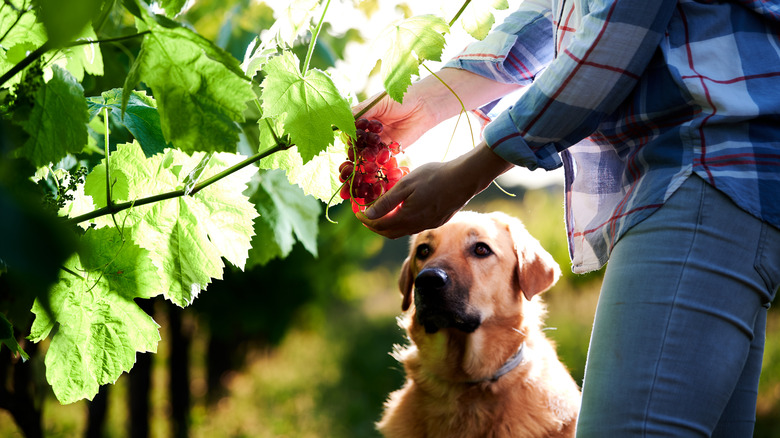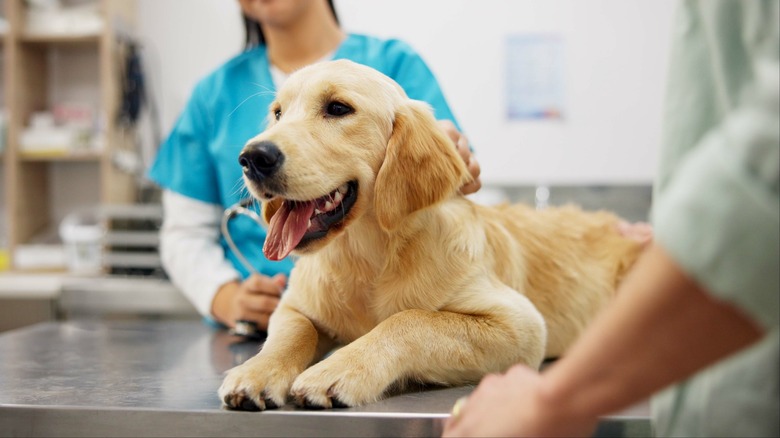Whatever You Do, Never Feed Your Dog Grapes — Here's Why
All loving pet parents want is to safeguard their furry friends, and keeping your pups far away from grapes is one key way to accomplish this. While grapes are a delicious fruit for humans to enjoy, this healthy snack is anything but good for your canine companions. Grapes are extremely toxic to dogs, no matter their size or breed.
Research has yet to reveal what in grapes causes this adverse reaction in dogs. However, according to American Kennel Club (AKC), the vine fruit poses an extreme danger to them. Even a single grape can cause sudden kidney failure and potential death, making the utmost vigilance when consuming this snack around your pet pivotal. Along with careful consumption, you should never store grapes anywhere your dog could potentially get to them. Dogs should avoid all varieties of fresh grapes, along with raisins and any other products that may contain grapes, such as jams.
Signs of grape poisoning in dogs
It's important to be aware of the symptoms of grape poisoning just in case your precious pup happens to get into this fruit when you aren't looking. Per AKC, signs of grape ingestion in dogs include lethargy, loss of appetite, vomiting, diarrhea, dehydration, and increased thirst. Since grapes are linked to sudden kidney failure in dogs, they might also experience yellow vomit and other associated symptoms.
If you suspect your pup has consumed a grape or grape by-product, it's crucial to get veterinary help right away. A veterinarian will likely induce vomiting in your dog to get the toxins out of their system. If you aren't sure if your dog ate a grape or not, you still want to contact a veterinarian and get medical attention due to the dangers even a small amount of grapes pose. It also might be a good idea to induce vomiting in your dog yourself by using salt or other techniques if you suspect they possibly consumed a grape or a product containing grapes.
Healthy, doggy-approved snacks
While grapes are an absolute no for your pup, certain other fruits are safe for them to snack on in moderation. As detailed by the AKC, apples, bananas, blueberries, cantaloupe, mango, raspberries, and strawberries are all alright to eat, and many of them actually have nutritional values that can benefit dogs. Blueberries are packed with health perks thanks to their antioxidants and fiber. Apples also contain lots of good vitamins and are low in fat, making them a healthy snack option for pooches. However, it's always best to limit access to fruit due to its high sugar content, especially with dogs who show signs of hyperglycemia or who have diabetes.
If your pup prefers veggies over fruit, there are safe and healthy options for them as well. Broccoli, carrots, celery, and green beans are all good bets, according to the AKC. Just like fruit, vegetables are best fed to dogs in moderation. You should also be careful about how you give it to them, as many of these treats can easily become choking hazards or may need to be cooked first. Purees and small bites are often the way to go, but always research the best preparation method for each item and consider getting the green light from your vet first.


